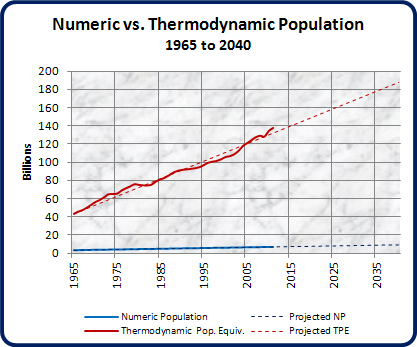Environment & Energy
Related: About this forumA model predicts that the world's populations will stop growing in 2050
http://www.eurekalert.org/pub_releases/2013-04/f-sf-amp040413.phpContact: SINC
info@agenciasinc.es
34-914-251-820
FECYT - Spanish Foundation for Science and Technology
[font size=5]A model predicts that the world's populations will stop growing in 2050[/font]
[font size=3]Global population data spanning the years from 1900 to 2010 have enabled a research team from the Autonomous University of Madrid to predict that the number of people on Earth will stabilise around the middle of the century. The results, obtained with a model used by physicists, coincide with the UN's downward forecasts.
According to United Nations' estimates, the world population in 2100 will be within a range between 15.8 billion people according to the highest estimates –high fertility variant– and 6.2 billion according to the lowest –low fertility variant–, a figure that stands below the current 7 billion.
A mathematical model developed by a team from the Autonomous University of Madrid (UAM) and the CEU-San Pablo University, both from Spain, seems to confirm the lower estimate, in addition to a standstill and even a slight drop in the number of people on Earth by the mid-21st century.
The population prospects between 1950 and 2100 provided by the UN were used to conduct the study, published in the journal 'Simulation'. Mathematical equations which are used in scientific fields, such as condensed matter physics, were then applied to this data.
…[/font][/font]
GliderGuider
(21,088 posts)More abstract equations to model the future based on the past, while the world is beginning to experience multiple phase changes? Not interesting.
OKIsItJustMe
(19,938 posts)It wasn’t long ago you felt that halting population growth was vitally important…
Frequently you post pretty graphs drawn using extrapolations from too little data.

GliderGuider
(21,088 posts)That's how I know what a bogus exercise it is.
But I just post my unscientific musings on blogs or my own web site. I don't try to get them published in journals to convince people I'm adding to the world's store of scientific knowledge.
OKIsItJustMe
(19,938 posts)The model's S-shaped sigmoid curve reflects this situation with an inflection point in the mid-1980s when the speed at which the population is growing starts to slow down until it stabilises around 2050.
The data also reflect the downward trend in the UN's series of prospects. "Overpopulation was a spectre in the 1960s and 70s but historically the UN's low fertility variant forecasts have been fulfilled," Muñoz highlighted.
As recently as 1992 it was predicted that there would be 7.17 billion people on Earth by 2010 instead of the actual 6.8 billion. In fact, the fertility rate has fallen by more than 40% since 1950.
…
GliderGuider
(21,088 posts)I don't think "stabilization" is in the cards for our population, though. "Peak and decline" yes. I'm sticking with my expectation of a population peak between 7.5 and 8 billion around 2030, and a steep slide after that as climate change chews the heart out of the world's food supplies and social organization. 3-4 billion by 2100...
It reminds me of reading the IPCC reports, and knowing that the words "clathrate" and "permafrost" don't appear in any of their GCMs.